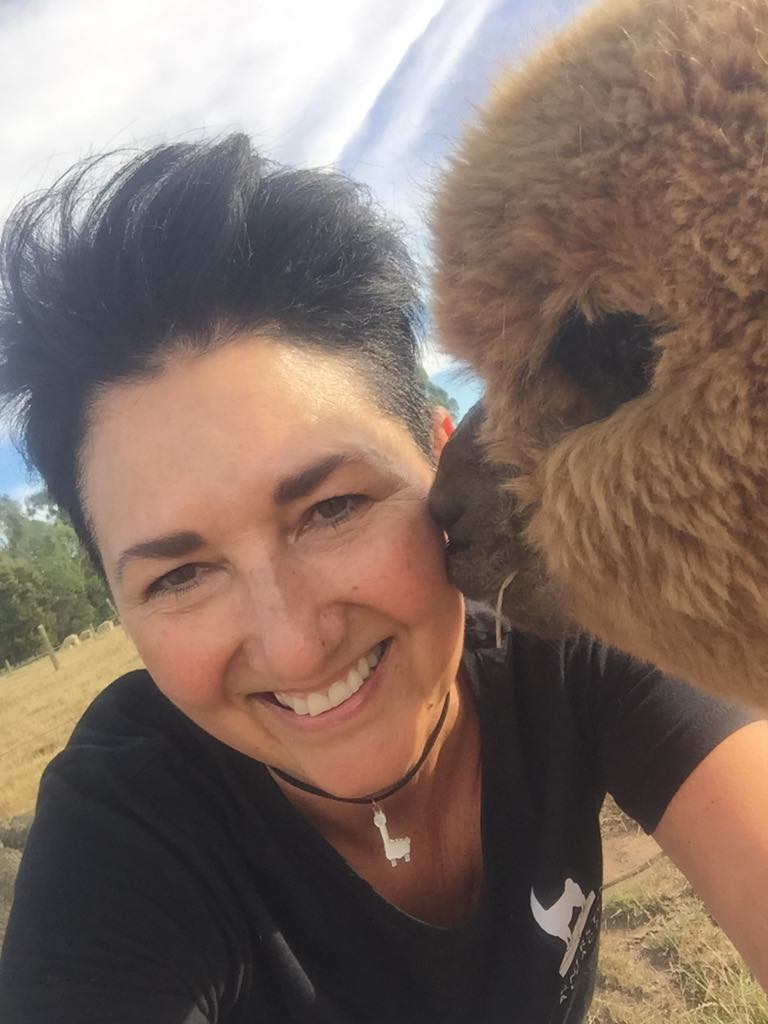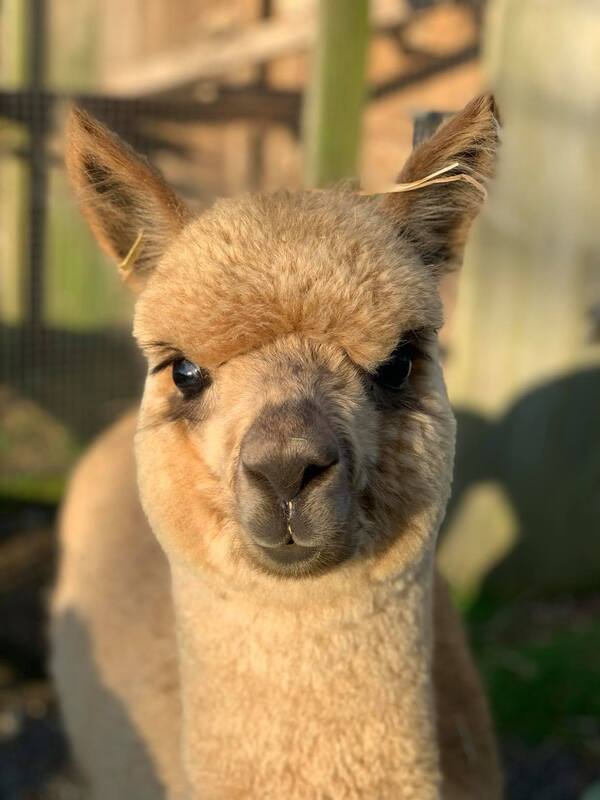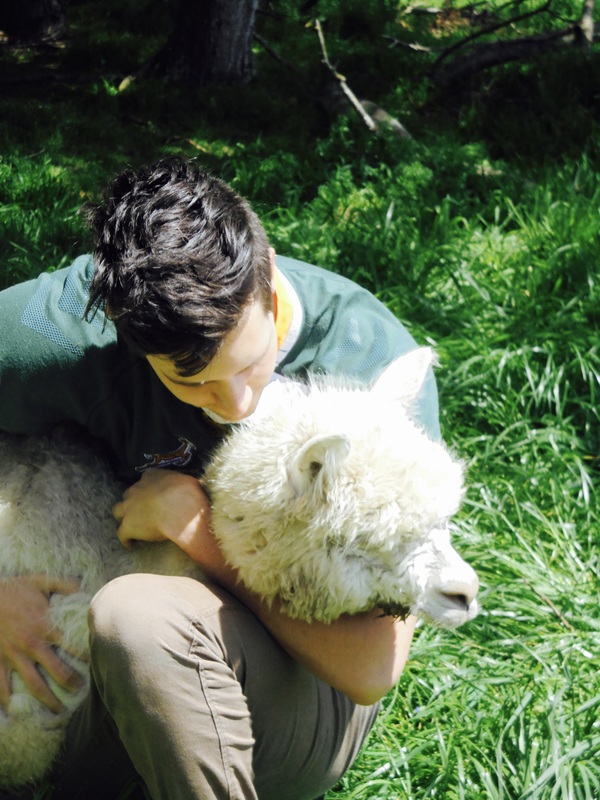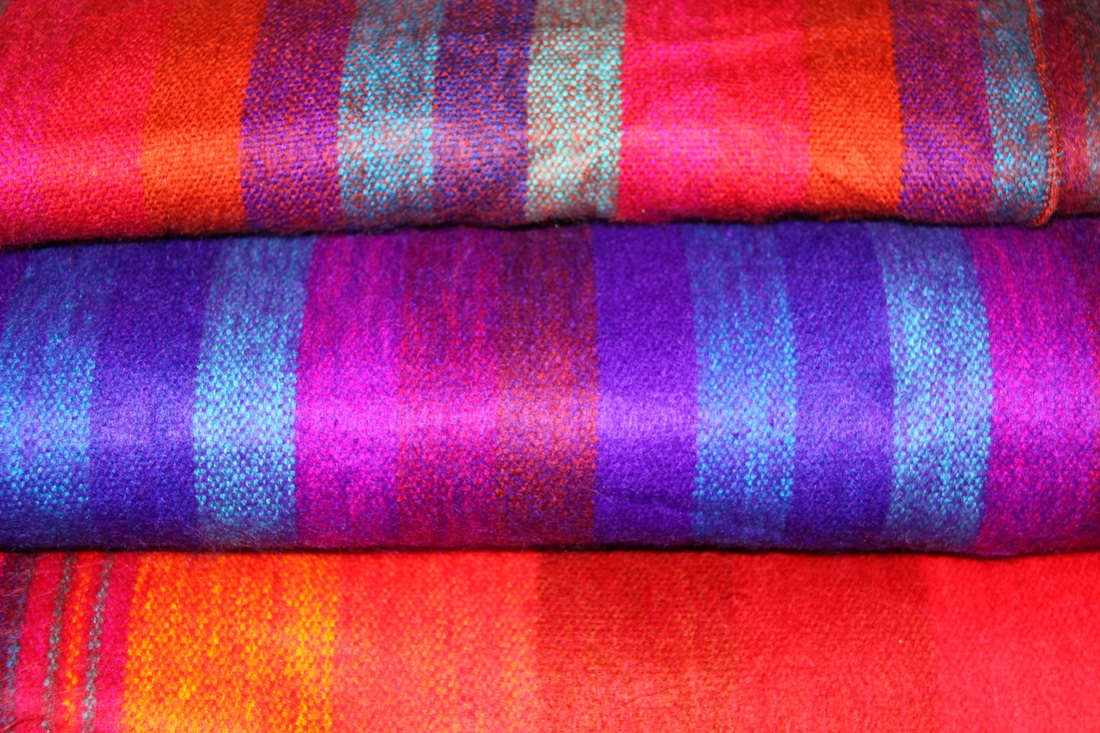Alpaca Info
Interesting FactsWhile they are beautiful to look at and come in 22 different natural colours, you would expect the harsh conditions to make them coarse and brittle. Quite to the contrary! When you first touch alpaca fleece you are amazed at how soft and lustrous it is. You want to run your hands through it to get the full experience.
Soft as cashmere and warmer, lighter and stronger than wool, alpaca fleece is enjoyed by spinners and weavers for garments which can be worn next-to-the-skin. Despite the many advantages of the fibre, alpaca farming is still in its infancy and on the world market only represents about 0.1% of wool sales, lending it an exotic image. While that harsh environment of the Andes is their natural environment, alpacas have proven to be a great livestock for farms in New Zealand. Today there are approximately 26,000 alpacas in NZ. An alpaca herd may be relatively small, often with fewer than ten animals. The animals graze easily and, with their padded feet, do much less damage than hoofed farm animals. They are easily managed and dogs are not needed to move them around pastures. The Alpaca Alpacas are members of the Camelid family, along with camels, llamas, guanacos, and vicuñas. There are two types. The Suri has long fibres that form long strands – very similar to dread locks. The Huacaya has a more fluffy fibre with a lot of fine crimp. The dam is a Hembra. The sire is a Hombra/Macho. The young are Cria. How big are Alpacas? Baby alpacas weigh 5-9kgs at birth. Huacaya breed are very compact in size, about 1 metre at the shoulder and adults weigh around 50-80kgs. Alpaca Behaviour As a general rule alpacas are very placid and social animals. Each has a distinct personality. They are gentle and non-aggressive and will halter train quite easily and can make wonderful pets. They do spit occasionally, usually when their food or young are threatened. They are highly social animals and need the company of their own species. They respond well to attention. They communicate through tail, body and ear postures, as well as sounds (usually hums, but also shrill cries). The alpaca’s lifespan Alpacas live for around 20-25 years. During its life time a female alpaca can produce 15 or more offspring. Grazing requirements for alpacas Alpacas are browsers rather than grazers. They thrive on a low protein high fibre diet. A maximum of 14% protein in the diet is recommended. They also like meadow hay and silage. Stocking rates 5-8 to the acre, depending on the quality of pasture. Their feed requirements are rated at 1 alpaca per 1.2 sheep (N.Z. Ministry of Agriculture figures.) Alpaca hygiene Alpacas are very tidy animals. They normally defecate in one place, sometimes walking a distance to do this. The waste can be collected and placed in a compost pile where it makes excellent garden fertilizer or alternatively spread onto the pastures as a natural fertilizer. Shelter Alpaca do not normally seek shelter, if you have trees as wind breaks; this is mostly all they need. Their fibre provides excellent insulation and protection from the cold. Fencing requirements Fences are erected not as much to keep alpacas in (they will rarely challenge a fence), but more to keep predators out. Straying dogs are the main concern. A 5 or 6 foot boundary fence or deer fence is most suitable. Normal sheep type fences are suitable for internal fencing. Alpaca fences are now available. |
Breeding Female alpacas are mature enough to breed around 12 to 16 months old, but in many countries they are not mated until approaching 2 years of age. They have no season, or menstrual cycle, as many other animals do. Rather, they are induced ovulators, meaning the eggs of the female are released in response to mating. Gestation is around 340 days. Remating is best 14 to 18 days after giving birth. Because they are from cold climates, most alpaca births occur during the day and are uncomplicated. Cria are normally weaned at 6 to 7 months of age. During their life time females can produce 15 or more Cria. The males are usually sexually mature at 2 to 2½ years of age sometimes as young as 1½ years. Veterinary care Most of the health care that alpacas require can be done by the owners if they have had previous livestock experience. They need an immunization injection (vaccination) twice a year, a normal sheep vaccine of the 5 in one type provides sufficient immunity from clostridial diseases(Pulpy kidney, Tetanus, Black Disease, Malignant Oedema, and Blackleg.) The cria's should be vaccinated at 4- 6 weeks of age when the immunity given from the mother is no longer effective. Deworming normally twice a year maybe more depending on the environment they are running under. The familiar Ivermectin months. Toe nail and teeth trimming is normally done every 3-4 months. TB testing is voluntary – however in the interest of good animal health practice it is recommended. Rye-grass Staggers: First signs are a perceptible tremor of the head and neck followed by unstable gait. Remove the animal from the infected pasture immediately. Feed Lucerne of good quality. Mycosorb can help to absorb the toxins in the digestive system. Males not required for stud can be castrated around 1 year of age – these animals make wonderful pets and fibre producers. Shearing Alpacas Shearing should be done once a year in the spring or early summer .This also allows them to remain cool during the hot summer months and grow sufficient fleece for protection against the winter cold. The fleece from shearing one year's growth will normally weigh about 3kg to 5kg per alpaca. Fibre selling Weavers and hand spinners love to work with alpaca fibre. The price and product is influenced by the colour and the quality of the fleece. Alpaca Manure The alpaca is a ruminant with three stomachs; it converts grass and hay to energy very efficiently, eating far less (as a percentage of its body weight) than other farm animals. Alpaca manure is lower in organic matter content than the manure from most other barnyard livestock (cows, horses, goats and sheep) but still has enough to improve soil texture and water-holding capacity. This lower organic content allows alpaca manure to be spread directly onto plants without burning them. It is the decomposition of organic matter content of the manure that indicates their efficient digestion system. The nitrogen and potassium content of alpaca dung is comparatively high, an indication of good fertilizer value. Nitrogen, phosphorus and potassium are the major plant nutrients. (They are the familiar N-P-K on fertilizer bags, N-P-K= 1.5-0.2-1.1) Phosphorus is relatively low as in most livestock manure. The Calcium and Magnesium content is about average. Gardeners find the alpaca's rich fertilizer perfect for growing fruits and vegetables. A herd of alpacas consolidates its waste in one or two spots in the pasture, thereby controlling the spread of parasites and making it easier to collect and compost their fertilizer. (More infowww.o2compost.com/content /Alpaca_Facts.htm) |
The clever choice
|
Fibre of the gods
|
Once reserved for Inca royalty, alpaca fibre was also known as, ”Fibre of the gods.”
Today alpaca fibre are quickly catching on as one of the world's best kept secrets in the clothing and fashion industry. Spinners and weavers around the world can't get enough of this luxurious fibre! |
What makes it so special?
|
History
Alpacas were a cherished treasure of the ancient Inca civilization. They played a central part in the Incan culture that was located on the high Andean plateau and mountains of South America. Alpacas have been domesticated for some 6,000 years and produce a fine cashmere-like fleece, once reserved for Incan royalty.
Since then, alpacas have been treated as a unique and essential resource. Alpaca farming is now concentrated in the Altiplano area in the high altitude regions of Southern Peru, Bolivia and Chile.
Alpaca farming outside of South America started in 1984 when alpacas were first imported into the United States. Farming spread further in 1989 with the export of the first alpacas from Peru and Chile to Australia and New Zealand. Today, there is worldwide commerce in the alpaca and its products.
Since then, alpacas have been treated as a unique and essential resource. Alpaca farming is now concentrated in the Altiplano area in the high altitude regions of Southern Peru, Bolivia and Chile.
Alpaca farming outside of South America started in 1984 when alpacas were first imported into the United States. Farming spread further in 1989 with the export of the first alpacas from Peru and Chile to Australia and New Zealand. Today, there is worldwide commerce in the alpaca and its products.












